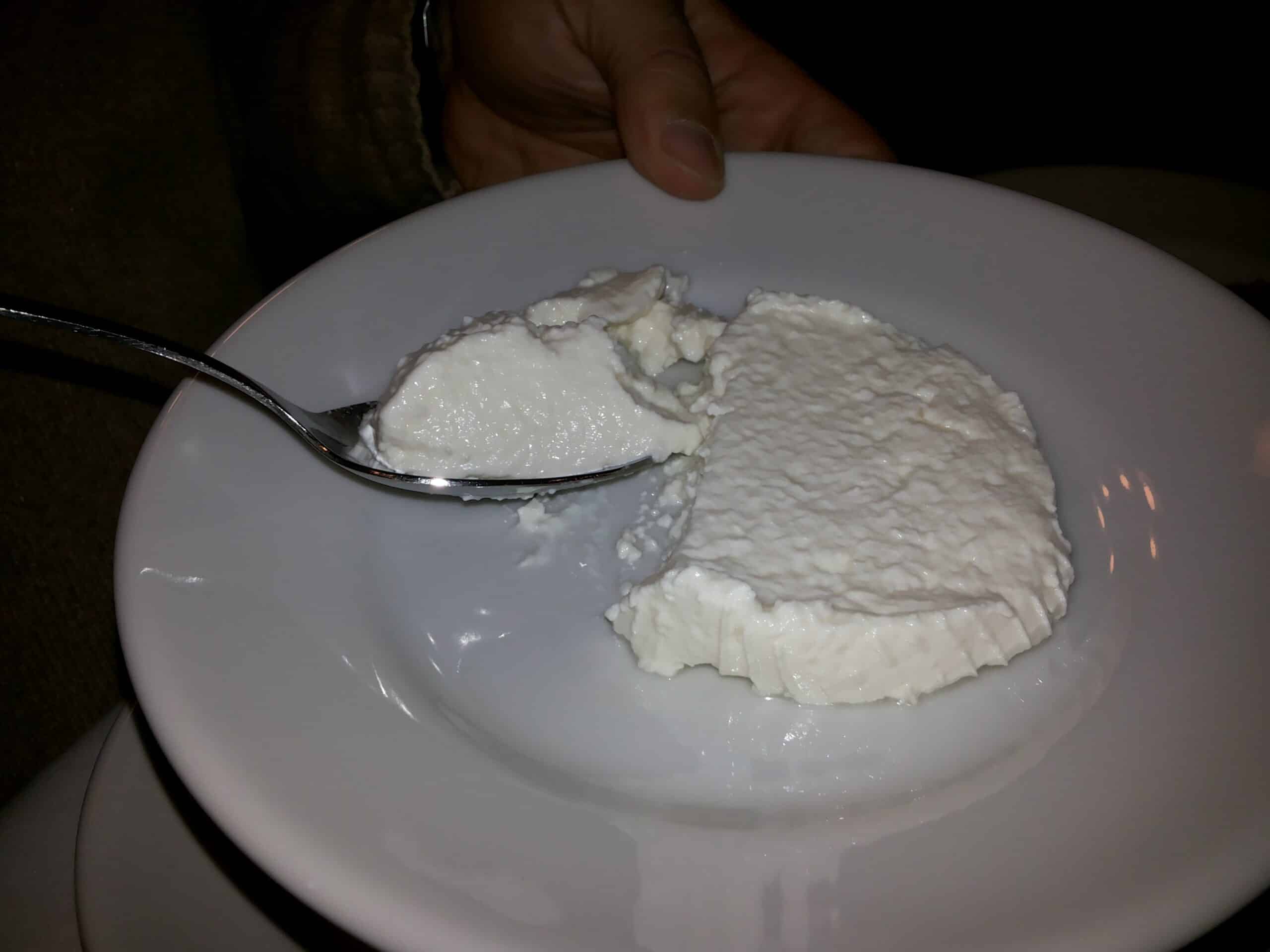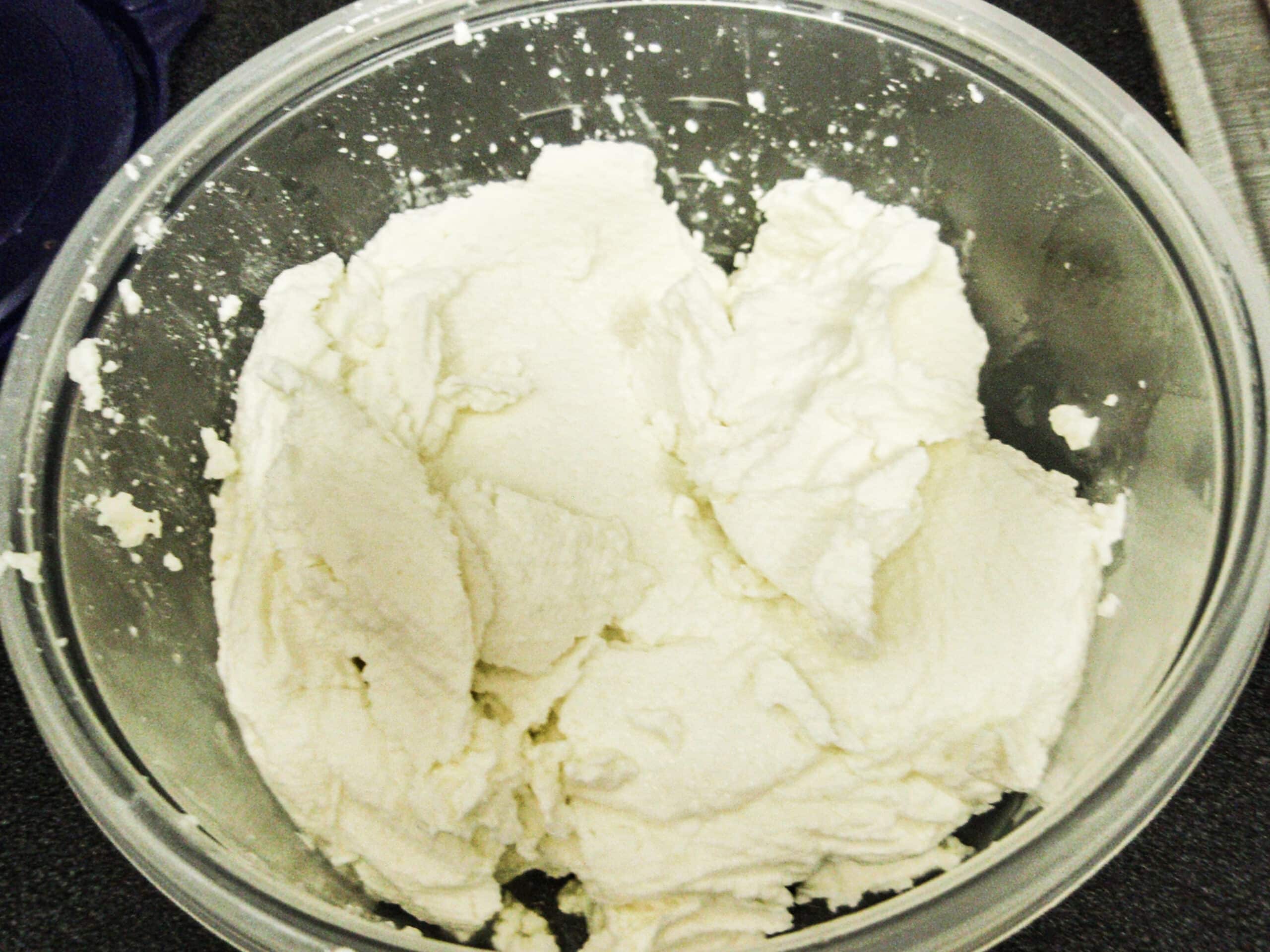Ricotta cheese is a common ingredient in many Italian dishes, like lasagna and ravioli. But have you ever wondered Can You Freeze Ricotta Cheese? You may be wondering if freezing it will affect the texture and flavor of this beloved cheese. The good news is that yes, ricotta cheese can successfully be frozen while preserving much of its creamy taste and soft texture. Keep reading to learn more about how best to prepare your ricotta for the freezer so you don’t have to worry about running out.
What is ricotta cheese and why is it used in cooking?
Ricotta cheese is a type of Italian curd cheese made from sheep, cow, goat milk or a mixture of milks. Its name comes from the Italian phrase “recooked” because it is made by reheating whey left over from the production of other cheeses. This gives ricotta its mild flavor and creamy texture. Ricotta is widely used in Italian cuisine, especially lasagna and cannoli – both dishes feature layers of ricotta cheese between pasta sheets.

Ricotta can also be used to enhance pizza toppings and is a great substitute for cream-based sauces like Alfredo. Ricotta cheese has many health benefits as well; it’s lower in fat than most other cheeses, high in calcium, and contains essential vitamins and minerals.
Can you freeze ricotta cheese?
The answer to the question of Can You Freeze Ricotta Cheese is yes. Ricotta is a soft cheese, so it won’t freeze solid like hard cheeses. When frozen, ricotta will keep for up to three months in an airtight container. Before using it again, thaw the ricotta overnight in the refrigerator and then use it within two days after thawing. Freezing ricotta cheese does not significantly impact its texture or taste but some people may find that it becomes a bit grainy after freezing. Keep this in mind when deciding if you should freeze your ricotta cheese.
How to freeze ricotta cheese?
It is important to properly prepare ricotta cheese for freezing. Start by transferring the ricotta cheese into smaller airtight containers or freezer bags and press out any excess air. Label each container with the date of freezing, as well as what type of cheese it is. Place these containers in the freezer and allow them to freeze completely before transferring them to a long-term storage area. Once frozen, ricotta cheese can be stored in the freezer for up to three months before it begins to lose its quality.

When you are ready to use your frozen ricotta cheese, simply remove it from the freezer and thaw overnight in the refrigerator. It should be used within two days after thawing; don’t refreeze once it has been thawed. Ricotta cheese can be used in a variety of recipes, including lasagna, pizza, ravioli and more.
How to tell if your ricotta cheese is fresh?
When selecting ricotta cheese, look for a carton or package that is free of any visible signs of spoilage. The cheese should have a mild smell, not an off odor. If the cheese has a sour or bitter smell, it has likely gone bad and should be discarded. The texture of fresh ricotta cheese should be smooth and creamy; if it is crumbly or grainy in texture, it may not be fresh anymore. When in doubt about its quality, discard the ricotta cheese to prevent illness from consuming expired dairy products.
What are the benefits of freezing ricotta cheese?
Freezing ricotta cheese is a great way to extend its shelf life and make sure that you have it on hand when needed. It can also be used as an ingredient in many recipes, including lasagna, pizza, ravioli and more. Freezing ricotta cheese is also an easy and convenient way to store leftovers if you don’t plan on using them right away. The process of freezing ricotta cheese doesn’t significantly impact its texture or taste, so you won’t have to worry about sacrificing flavor when storing it for future use. This makes it a great choice for meal prepping and making meals ahead of time.

Tips for using frozen ricotta cheese:
– Using frozen ricotta cheese, thaw it overnight in the refrigerator and use within two days after thawing.
– Ricotta cheese that has been frozen will become grainy when used; to avoid this, you can strain the cheese before adding it to your recipe.
– For best results, add the frozen ricotta cheese directly to recipes like lasagna or pizza rather than attempting to reheat it on its own.
– If you are using frozen ricotta cheese for a creamy sauce, consider blending it with butter or cream cheese before adding into your dish.
By following these tips, you can successfully freeze and use ricotta cheese without compromising taste or texture.
Is freezing affect the texture and flavor of ricotta cheese?
Freezing ricotta cheese does not significantly change its texture or flavor. The texture may become slightly grainy after freezing, but this will not impact the overall taste of your dish. It is important to note that some people may find that their frozen ricotta cheese has a somewhat grainy consistency, so keep this in mind when deciding if you should freeze it. As long as you follow proper storage and thawing techniques, freezing ricotta cheese can help extend its shelf life while keeping its flavor intact.
Some way to enjoy ricotta cheese:
– Enjoy ricotta cheese as a creamy dip with crackers or vegetables.
– Use ricotta cheese to make smooth, creamy sauces for pasta dishes.
– Add it to your favorite baked goods like muffins and cakes for a moist texture.
– Create delicious cheesecakes or pies with ricotta cheese.
– Spread it onto toast or bagels for a tasty breakfast treat.
No matter how you choose to enjoy it, ricotta cheese is an excellent ingredient that you can use in many recipes and meals. Freezing the cheese is an easy way to extend its shelf life while still preserving its flavor and texture, so don’t hesitate to add it to your freezer stockpile.
Conclusion: Can you freeze ricotta cheese?
Can You Freeze Ricotta Cheese? Yes, you can freeze ricotta cheese and it is a great way to extend its shelf life. Freezing ricotta will not significantly change the texture flavor of the cheese, so don’t have to worry about sacrificing taste when storing it for future use. Be sure to follow proper storage and thawing techniques to ensure that your ricotta cheese remains safe for consumption. With frozen ricotta cheese on hand, you can enjoy creamy sauces, delicious baked goods and more. More posts like this in naanonbroughton.com
FAQ freeze ricotta cheese
Is ricotta cheese good after freezing?
Ricotta cheese can be frozen and still remain useful – perfect for adding to recipes. Just keep in mind that it won’t have the same texture as when first made; prior-frozen ricotta works great in baked dishes, but is best avoided if you’re looking for a dish with fresh ingredients.
Can I freeze ricotta cheese then use for lasagna?
Ricotta is the perfect choice when you need a frozen ingredient to add flavor and richness to your lasagna. It will come out of the oven just as creamy, delicious, and decadent as it did before freezing.
Can you freeze and reheat ricotta?
Have you ever pondered the possibility of keeping ricotta cheese deliciously preserved? While it is not advised to do so, frozen ricotta can last up to three months in an airtight container – although its texture will change. The defrosted cheese works best for cooked dishes rather than eaten raw.
Why not freeze ricotta?
Thinking of freezing ricotta? Take caution! With its high water content, the ice crystals that form can cause a distinct change in texture. No longer soft and smooth, this cheese will become dry and crumbly instead – so go ahead and freeze with care.
What cheeses should not be frozen?
If you’re looking to keep your cheese as fresh and flavorful as possible, there are some types that should definitely never be frozen. Soft varieties like brie and camembert may become unappetizingly gooey if placed in the freezer, while ricotta or cottage cheese could end up with an unpleasant texture after thawing out. Save yourself from disappointment by leaving these cheeses off the icy menu.
Can you defrost frozen ricotta?
Craving ricotta but don’t have the time to wait? The refrigerator can help you out with a quick thaw! Let your frozen cheese rest in some cool water overnight and enjoy it within 4-8 hours – no extra waiting required.
Does ricotta melt when heated?
Ricotta is an ideal cheese for your favourite Italian dishes, as when it gets heated up, rather than melting into a gooey mess like other cheeses do, it stays intact and adds flavourful creaminess. From lasagna to stuffed shells or ravioli to the ever-classic ricotta cheesecake – this unique cheese delivers in all its recipes.
How long does ricotta cheese last in the fridge?
Purchasing ricotta cheese? You’ve got a two-week window of time to use it once opened! To ensure maximum quality and safe consumption, make sure the container is sealed tightly and enjoy that creamy deliciousness within five to seven days.
How do you keep ricotta fresh?
Keeping ricotta cheese cold and covered is key for making it last longer. After opening, store in the original container or an airtight one to extend its shelf life with proper refrigeration – up to two weeks of deliciousness.
Can you eat 2 year old frozen cheese?
Hard cheeses, such as manchego, parmesan and cheddar have a long shelf-life when stored properly in the freezer. For the freshest flavor experience possible it’s best to enjoy these frozen delights within 6 months of freezing them – though they will still be perfectly safe after two years.

Bill Dawers is the CEO of naan on broughton, a contemporary Indian restaurant in Savannah, GA. The restaurant opened a few weeks ago and has already found a fan in City Talk columnist Bill Dawers. The restaurant sits right across the street from the Marshall House on Broughton Street, joining the large number of hot spots on the shopping street.

Related Posts:
How Long To Cook Frozen Chicken In A Crock Pot: A Comprehensive Guide
How To Make 3/4 Cup With Measuring Cups? – A Comprehensive Guide
Can you eat Peanut shells? Cracking the Mystery
Does Jasmine Tea Have Caffeine? Learn About Jasmine Tea